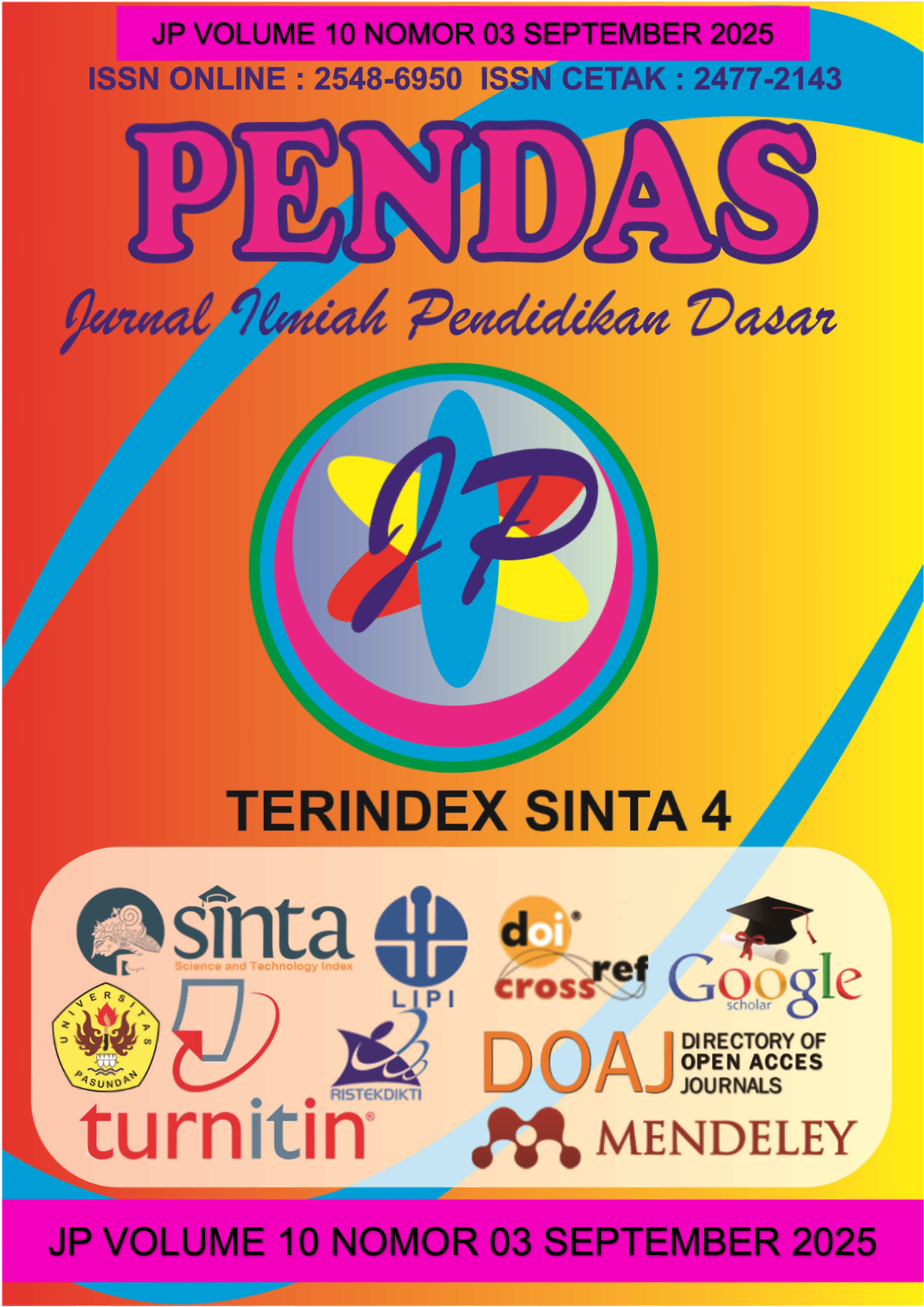INOVASI PEMBELAJARAN DENGAN DICE BOARD GETS SMART DAMPAKNYA TERHADAP PROSES DAN KEMAMPUAN PEMECAHAN MASALAH
DOI:
https://doi.org/10.23969/jp.v10i03.30970Keywords:
Problem Solving, Solution to Problem, Dice Board Gets SmartAbstract
The problem addressed in this study is the low ability of students to solve mathematics problems based on Higher Order Thinking Skills (HOTS) that involve problem-solving indicators. Based on a preliminary study, students at SDN Sidomulyo 04 showed difficulties in understanding the steps to solve problems due to a lack of understanding of problem-solving strategies. This indicates that their ability to identify and determine solutions has not been optimally developed. These difficulties are further supported by the researcher’s observations during the learning process, which revealed that students are not yet accustomed to applying critical and systematic thinking in solving mathematical problems. This study aims to examine the effect of the problem-solving learning model assisted by the Dice Board Gets Smart media on students’ problem-solving abilities. The main issue is the low problem-solving ability of students during the learning process. This research uses a quantitative approach with the population being all students at SDN Sidomulyo 04, while the sample consists of students from classes IIIA and IIIB. The results of the study show that: (1) There is a significant difference between the experimental class using the problem-solving model assisted by Dice Board Gets Smart media and the control class using the problem-solving model without the media, with a significance value of 0.012 < 0.05 based on the independent t-test. (2) There is an influence of the problem-solving learning model assisted by Dice Board Gets Smart media on students' problem-solving abilities, with a significance value of 0.001 < 0.05 based on the regression test. In conclusion, the problem-solving learning model assisted by the Dice Board Gets Smart media is effective in improving students’ problem-solving skills.
Downloads
References
lia, U. Z., Kasdriyanto, D. Y., &
Sriwijayanti, R. P. (2025).
Pengembangan Bahan Ajar
Mathir Untuk Meningkatkan
Keterampilan Problem Solving
Matematika Bangun Ruang Kelas
5 SDN Malasan Wetan 1. 6(1), 8–
18.
https://doi.org/10.30596/jppp.v6i1
.23719
Erita, E. (2017). Pengaruh Model
Pembelajaran. Economica, 6(1),
72–86.
https://doi.org/10.22202/economi
ca.2017.v6.i1.1941
Fadilah, A., Nurzakiyah, K. R., Kanya,
N. A., Hidayat, S. P., & Setiawan,
U. (2023). Pengertian Media,
Tujuan, Fungsi, Manfaat dan
Urgensi Media Pembelajaran.
Journal of Student Research
(JSR), 1(2), 1–17.
Febriana, T., & Indarini, E. (2020).
Komparasi Pembelajaran
Problem Based Learning (PBL)
dan Problem Solving terhadap
Kemampuan Berpikir Kritis
Matematis Siswa Sekolah Dasar.
Jurnal Basicedu, 4(4), 1016–
1020.
https://doi.org/10.31004/basicedu
.v4i4.494
Junaidi, J. (2019). Peran Media
Pembelajaran Dalam Proses
Belajar Mengajar. Diklat Review :
Jurnal Manajemen Pendidikan
Dan Pelatihan, 3(1), 45–56.
https://doi.org/10.35446/diklatrevi
ew.v3i1.349
Mustika Sari, S., Susanti, N., Indrayati,
H., & Muhammadiyah Pagaralam,
S. (2024). Efektivitas Model
Pembelajaran Discovery
Learning Menggunakan Alat
Peraga Board Elements of Circle
pada Materi Lingkaran. Mathema
Journal E-Issn, 6(1), 2024.
Nuha, F. H. (2023). Pengaruh Game
Based Learning Berbantuan Fun
Card Puzzle Terhadap
Pemahaman Konsep Siswa
Kelas V SD. Universitas Ngudi
Waluyo.
Putri Ayu Tyara, & Lisa Virdinarti
Putra. (2023). The Influence of
Problem-Solving Learning Model
Assisted by Adventure Board
Media on Students’ Problem-
Solving Ability. International
Journal of Scientific
Multidisciplinary Research, 1(5),
459–470.
https://doi.org/10.55927/ijsmr.v1i
5.4642
Sagita, D. K., Ermawati, D., & Riswari,
L. A. (2023). Kemampuan
Pemecahan Masalah Matematis
Siswa Sekolah Dasar. Jurnal
Educatio FKIP UNMA, 9(2), 431–
439.
https://doi.org/10.31949/educatio
.v9i2.4609
Downloads
Published
Issue
Section
License
Copyright (c) 2025 Pendas : Jurnal Ilmiah Pendidikan Dasar

This work is licensed under a Creative Commons Attribution 4.0 International License.














































